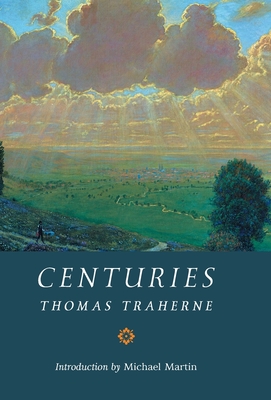Centuries

Centuries
Thomas Traherne (c. 1636-1674) was an English poet, clergyman, theologian, and religious writer. The present volume is his best known work, first published in 1908 after having been rediscovered in manuscript ten years earlier. Perhaps more than any spiritual writer of his age, Traherne is profoundly cognizant of the Glory of the Lord as it abides in Creation. His writing conveys an ardent, almost childlike love of God, and is compared to similar themes in the works of later poets William Blake, Walt Whitman, and Gerard Manley Hopkins. More than this, he frequently expresses his love for the natural world in a way that anticipates by two centuries the Romantic movement. In Traherne's understanding, sin manifests itself primarily as the result of human ingratitude--in turn a result of not properly beholding the Creation--and offers something far more healthy and far more biblical: the gift of transfigured vision. The clandestine Gnosticism that has haunted Christianity since the Apostolic Age--that which whispers "the Creation is not our real home"--finds no place in Traherne's theology. The cumulative effect of Traherne's work is to convince the reader that "the kingdom of heaven is within you." That is, felicity appears when we learn to see the world as it is, as God sees it.Centuries is probably one of Traherne's final works. The name "Centuries" is not one of his devising, for that title was added to the manuscript following its discovery in 1896-97. Written in five groupings of one hundred relatively brief meditations each, the Centuries are messages of spiritual direction in the tradition of cura animarum, which has long precedent in Christian spirituality going back at least to Evagrios Ponticos (c. 346-399) and Maximos the Confessor (c. 580-662.
PRP: 235.62 Lei
Acesta este Pretul Recomandat de Producator. Pretul de vanzare al produsului este afisat mai jos.
212.06Lei
212.06Lei
235.62 LeiLivrare in 2-4 saptamani
Descrierea produsului
Thomas Traherne (c. 1636-1674) was an English poet, clergyman, theologian, and religious writer. The present volume is his best known work, first published in 1908 after having been rediscovered in manuscript ten years earlier. Perhaps more than any spiritual writer of his age, Traherne is profoundly cognizant of the Glory of the Lord as it abides in Creation. His writing conveys an ardent, almost childlike love of God, and is compared to similar themes in the works of later poets William Blake, Walt Whitman, and Gerard Manley Hopkins. More than this, he frequently expresses his love for the natural world in a way that anticipates by two centuries the Romantic movement. In Traherne's understanding, sin manifests itself primarily as the result of human ingratitude--in turn a result of not properly beholding the Creation--and offers something far more healthy and far more biblical: the gift of transfigured vision. The clandestine Gnosticism that has haunted Christianity since the Apostolic Age--that which whispers "the Creation is not our real home"--finds no place in Traherne's theology. The cumulative effect of Traherne's work is to convince the reader that "the kingdom of heaven is within you." That is, felicity appears when we learn to see the world as it is, as God sees it.Centuries is probably one of Traherne's final works. The name "Centuries" is not one of his devising, for that title was added to the manuscript following its discovery in 1896-97. Written in five groupings of one hundred relatively brief meditations each, the Centuries are messages of spiritual direction in the tradition of cura animarum, which has long precedent in Christian spirituality going back at least to Evagrios Ponticos (c. 346-399) and Maximos the Confessor (c. 580-662.
Detaliile produsului








